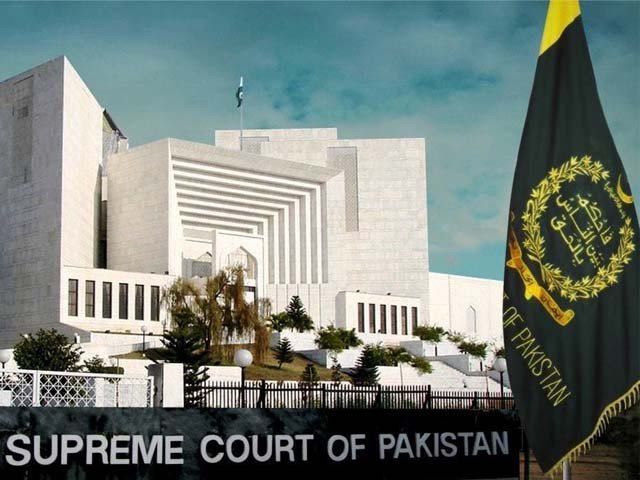Human Rights Violations
The Supreme Court suspends Islamabad High Court’s order to stop illegal surveillance
On Monday, August 19, 2024, the Supreme Court of Pakistan suspended the Islamabad High Court’s order that had stopped illegal surveillance of citizens.

On Monday, August 19, 2024, the Supreme Court of Pakistan suspended the Islamabad High Court’s (IHC) order that stopped the illegal surveillance of citizens. A two-member bench of the Supreme Court, comprising Justice Aminuddin Khan and Justice Naeem Akhtar Afghan, accepted the federal government’s plea challenging the IHC’s decisions in the audio leaks case.
The Audio Leaks Case
For context, on December 6, 2023, Bushra Bibi, wife of former Prime Minister Imran Khan, filed a petition in the Islamabad High Court challenging the illegal surveillance that violated her fundamental rights to dignity and privacy, as guaranteed by Article 14 of the Constitution.
The petition named the Principal Secretary to the Prime Minister, as well as the Secretaries of Defense and Interior, as respondents. This case, which became known as the audio leaks case, was presided over by Justice Babar Sattar of the Islamabad High Court.
The IHC declared that any form of surveillance on citizens was illegal and unconstitutional, and it demanded that Prime Minister Shehbaz Sharif explain who was responsible for the mass surveillance.
In his written order, Justice Babar Sattar stated that the federal government was responsible for the surveillance of millions of citizens and that PM Shehbaz Sharif and his cabinet members are “collectively and individually” accountable for this mass surveillance. The IHC further directed the Prime Minister to submit a report within six weeks detailing the legal framework governing the surveillance system. This report was to clarify whether the surveillance was conducted in accordance with the law and the Constitution and to identify who was responsible for installing and overseeing the system that infringed on citizens’ privacy.
Furthermore, the Islamabad High Court (IHC) also barred telecom companies from recording citizens’ telephone conversations for surveillance, citing that in the event of a violation, the respective telecom operator will be held accountable.
Additionally, the IHC issued contempt of court notices to the Chairman of the Pakistan Telecommunication Authority (PTA) and its members, requiring them to submit a response within six weeks. “The court is of the view that the PTA apparently misinterpreted the surveillance system in the report”, it added.
The government’s response to IHC’s verdict
In response to the IHC’s ruling, the federal government challenged the court’s verdict in the Supreme Court of Pakistan. The appeal named the son of former Chief Justice Saqib Nisar, Najamus Saqib, the PTA, the Ministry of Defense, and others as respondents.
The government argued that the IHC’s decision was contrary to the facts and that the relief granted by the high court was not even requested in the original petition.
The government further contended that the IHC has no authority to take suo motu notice under Article 199 of the Constitution and that its decision should therefore be declared null and void.
The plea also argued that the IHC had overstepped its authority by demanding reports from institutions (more specifically Inter-Services Intelligence) and that the high court was not in a position to conduct fact-finding investigations.
Case in the Supreme Court
On August 19, 2024, the Supreme Court accepted the federal government’s plea against the IHC’s decisions in the audio leaks case. The two-member bench, headed by Justice Aminuddin Khan and Justice Naeem Akhtar Afghan, suspended the IHC’s orders dated May 29 and June 25, 2024, and issued notices to Bushra Bibi, the wife of former Prime Minister Imran Khan, and Najam-ul-Haq, the son of ex-Chief Justice Saqib Nisar.
During the hearing, Justice Aminuddin Khan questioned whether the Islamabad High Court had determined the authenticity of the audio recordings and who was responsible for recording the audio calls. The Additional Attorney General responded that the investigation was still ongoing. Justice Naeem Akhtar Afghan remarked that no one in the country seemed interested in uncovering the truth and noted that the Supreme Court had already stayed the proceedings of the inquiry commission.
The Supreme Court emphasized the need to verify the authenticity of the audio recordings and questioned whether the Islamabad High Court had considered this aspect of the case. The court was informed that the IHC was not authorized to conduct an investigation, and the matter will be heard again on a date to be announced later.
Unauthorized surveillance: Invasions of privacy of citizens and violations of fundamental human rights
Lawyers, journalists, and citizens took to social media platforms to condemn the Supreme Court’s decision. In an environment where the country’s intelligence agencies and institutions are conducting mass surveillance, taping phone calls and recording private conversations at the behest of the military, the Islamabad High Court’s verdict provided a glimmer of hope for the rule of law and ensuring the privacy of citizens. However, the Supreme Court’s decision to suspend the IHC ruling and halt the proceedings in the audio leaks case will once again empower the ‘powers that be’ to infringe upon the fundamental rights of citizens, blatantly violate their right to privacy, and curb freedom of speech.




